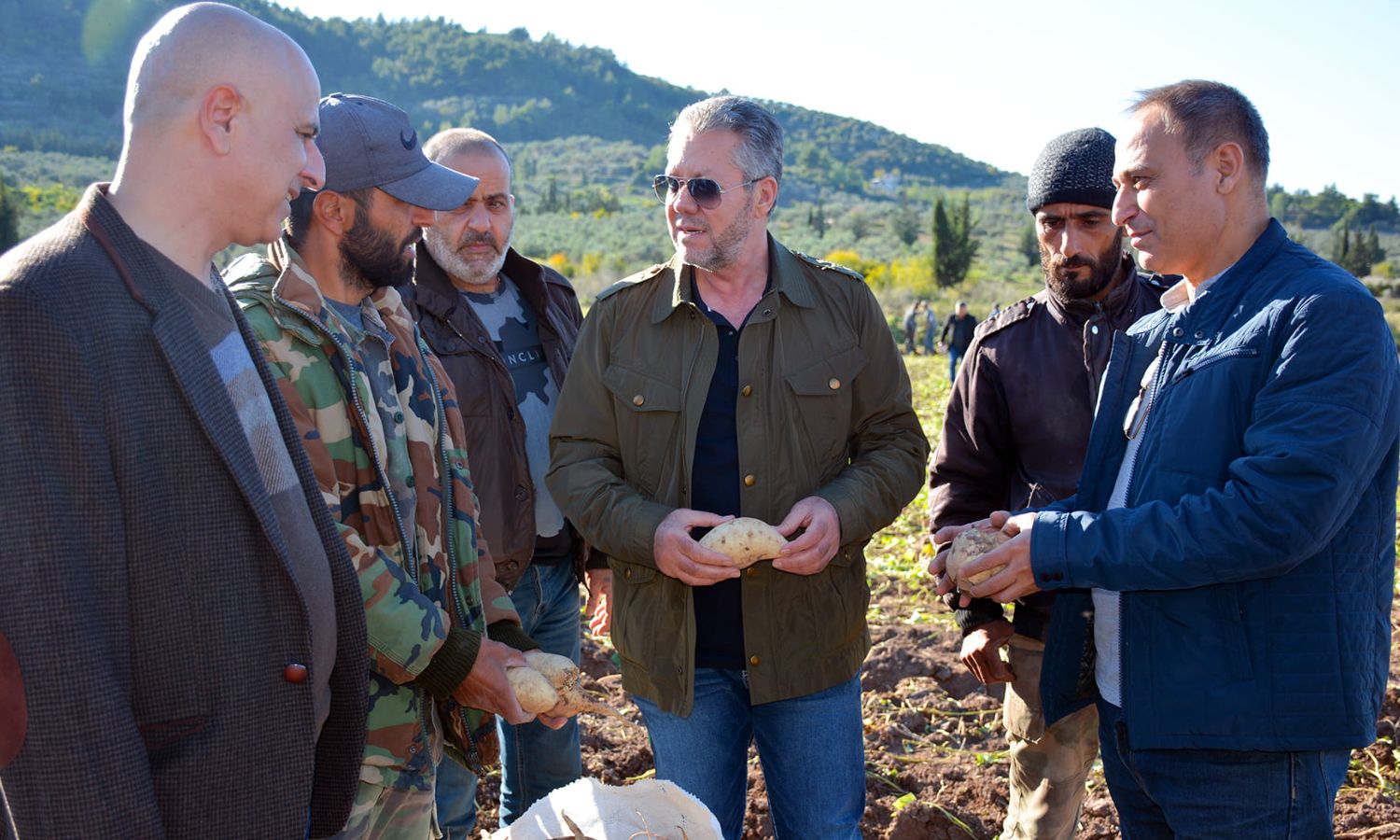



Enab Baladi – Jana al-Issa
Recently, the Syrian regime’s government has made several contradictory decisions regarding the import and export of locally consumed products, which have affected their prices and availability in the local market.
On February 14, the government decided to allow the import of 30,000 tons of table potatoes for a temporary period of about two months, following a scarcity of the product in local markets and a doubling of its price.
The decision also included permission to import 1,000 tons of garlic, regardless of the country of origin, provided that the amount is received no later than 45 days from the date of the decision.
Decisions related to the import of these two items were preceded, months earlier, by two separate decisions that allowed the export of potatoes and garlic, without any governmental consideration of the consequences of these contradictory decisions.
Associate Professor at the Faculty of Economics Management at Mardin University in Turkey, Syrian economist Dr. Abdul Nasser al-Jassim, said that the decisions made by the Syrian regime’s government regarding export and import are improvisational, random, and not well-considered.
As al-Jassim believes, in his conversation with Enab Baladi, the government tries through these decisions to benefit from any opportunity to bring hard currency into its treasury, regardless of studying the local market’s need for the products concerned by the decisions on one hand, and their impact on the local market on the other.
Assistant Minister of Economy for Foreign Trade Affairs, Shadi Johara, stated at the beginning of this year, that the economic policy regarding imports is to secure industrial and agricultural production requirements and to increase job opportunities in order to reduce the trade balance deficit and the demand for foreign currency.
The year 2023 ended with a decrease in the value of imports for both the public and private sectors by 27% compared to 2022, with a total value of more than 3.2 billion euros, according to data released by the Ministry of Economy and Foreign Trade in the Syrian regime’s government on January 10.
In contrast, the rate of exports during 2023 increased by 60% compared to the previous year, with a total value of exports for the public and private sectors exceeding 900 million euros, making the trade balance deficit around 2.3 billion euros for 2023.
Dr. al-Jassim sees that meeting the needs of the citizens is not a priority for the Syrian regime’s government, but rather its priority is securing the continuity of supporting its confrontation machinery and survival as a regime, without considering improving the citizens’ living standards.
Al-Jassim explained the retraction of decisions related to export by “momentary situational” conditions and some minor local pressures, pointing out that there is a real problem in estimating the market needs due to the absence of any real measurement tools under the conditions of lack of statistics and real figures. Therefore, decisions are made without relying on accurate numbers and estimations.
Recently, the prices of potatoes and garlic have witnessed an unprecedented rise in local markets, with the price of a kilo of garlic reaching around 85,000 Syrian pounds, and potatoes to 10,000 per kilo.
These ill-considered decisions have a significant negative impact on citizens and their living standards, as their income is fundamentally weak and does not suffice to cover even 10% of their needs.
At the beginning of this year, the average living costs for a Syrian family of five members, according to the Kassioun Index for Living Costs, crossed the 12 million Syrian pounds mark, while the minimum threshold reached about seven million and 500 thousand Syrian pounds, highlighting the gap separating the minimum wage from the average cost of living that is continuously rising.
Meanwhile, the minimum wage after the most recent increase in early February is 278,910 Syrian pounds, which equals 19 US dollars compared to the exchange rate at the time of the report, where the US dollar price in Damascus was recorded at 14,050 for buying and 14,200 for selling, according to the S-P Today website specializing in tracking the prices of gold and foreign currencies.
A report published in Al-Baath government newspaper, at the end of February, referred to anonymous sources, stating that the garlic commodity was withdrawn from the market at the beginning of the season and stored to be reintroduced after drying up the markets under the label “imported” in order to reach a suitable price for merchants.
Similar to garlic, the same is done with many other commodities, according to the report, questioning for how long economic decisions tailored to fit a few merchants will continue, and whether this could be an actual case of poor planning that repeats every year.
Economic expert Abdul Razzaq Habza spoke about government decisions based on erroneous data, stating that the government provides estimates for the production of certain commodities before they hit the markets, which turn out to be data not based on reality, and there is no one on the ground to follow up on this issue. Decisions are issued as office decisions, and the data are not precise but are closer to the truth, he said.
Syria is one of the six countries with the lowest food security levels in the world, with 12.1 million people (more than half the population) suffering from food insecurity, and 2.9 million experiencing severe food insecurity.
The United Nations High Commissioner for Refugees (UNHCR), in a report issued at the end of February, stated that according to the Humanitarian Needs Overview for 2024 in Syria, 16.7 million people require humanitarian assistance, an increase of 9% over the previous year.
if you think the article contain wrong information or you have additional details Send Correction